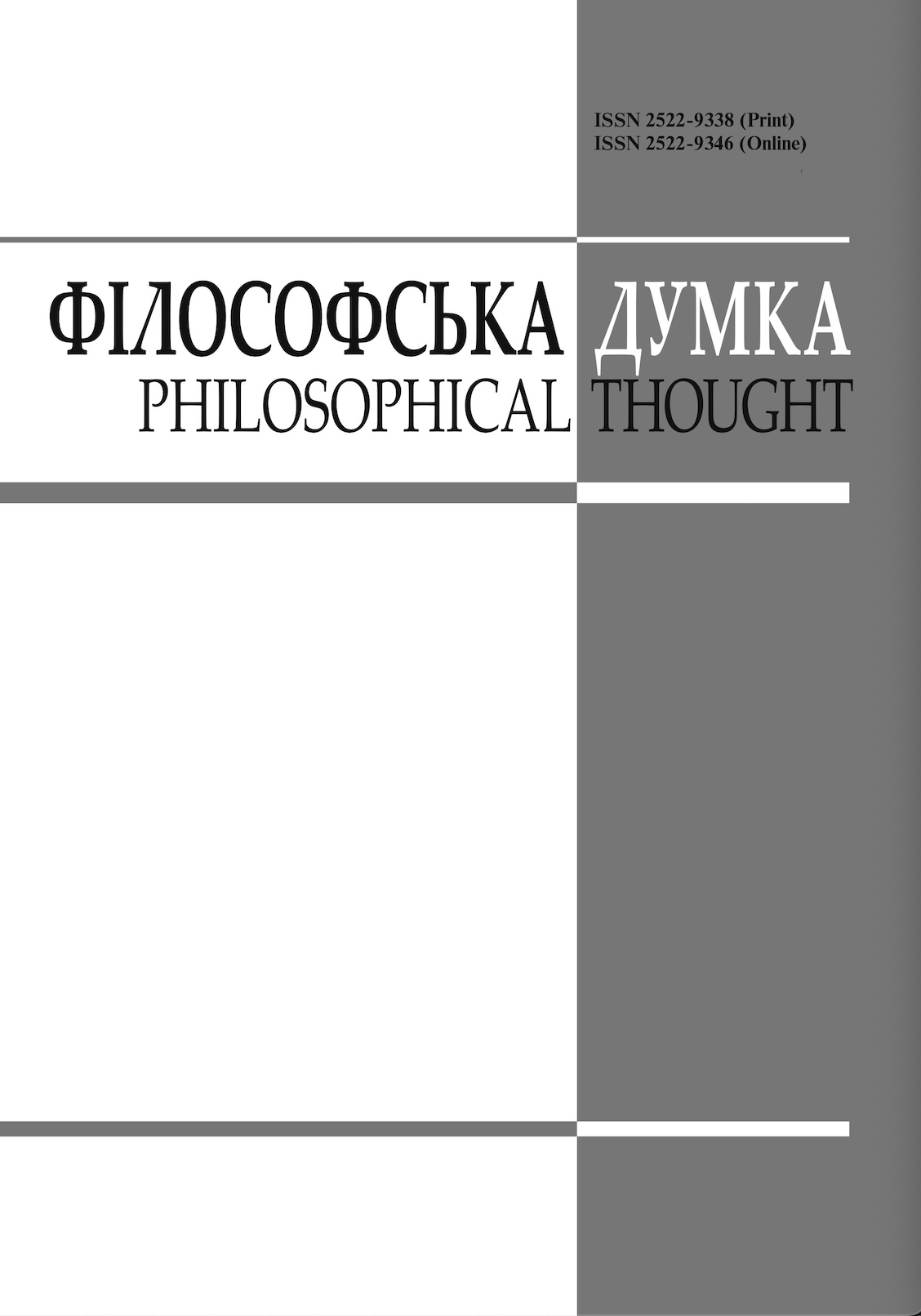CHRISTIAN THEOLOGICAL PROBLEM OF THE CONTINGENCY OF THE WORLD, WAR AND INDIVIDUAL COURAGE OF BEING IN THE PERSPECTIVE OF MODERN WORLDVIEW CATEGORIES
DOI:
https://doi.org/10.15407/fd2025.02.071Keywords:
essential ideals, religion, God, contingency, evil, pacifism, just warAbstract
The armed aggression against Ukraine challenged the fundamental principles of the European world order, it also shook the entire Christian world and forced to rethink some traditional beliefs and views. Within the framework of various Christian faiths, new accents introduced into the doctrine of peace and war are expressed to a greater or lesser extent, but are oriented towards a similar result - to update, as far as possible, the existing provisions of the doctrine and bring it closer to historical reality. Therefore, among different Christian confessions, despite the rather noticeable dissimilarity of theologians' approaches, a common motive for reflection is concern for the earliest possible overcoming of the gap between one's own faith and the reality of the modern world. The war clearly showed the clergy and the general public of ordinary believers that ignoring the dramatic realities of war, trying to stand aside from them, is no longer acceptable, otherwise it will lead to believers floundering in the archaic past, in a closed circle of outdated ideas, all that is unlikely to resonate in the minds of contemporaries. Christianity, even in the initial stages of its own formation, as a historically separate, original faith, resolutely rejected violence of any kind, giving a decisive preference to voluntary martyrdom over evil and violence in any of their types and forms.
Since time immemorial, the question of the responsibility of religious communities for peace, their competence in preserving peace, has arisen in its extremes between supporters of complete pacifism, who openly and directly denied violence, and supporters of the so-called “just war”, who found grounds for its justification in individual cases. Since time immemorial, the issues of the responsibility of religious communities for peace, their competence in preserving peace in its extreme manifestations, have arisen between supporters of complete pacifism, who openly and directly rejected violence, and supporters of the so-called "just war," who found grounds for its justification in individual cases.
However, it must be admitted that the traditional Christian point of view, by various means, still encourages aversion to injustice and violence rather than its justification.
References
Augustine. (2001). War and Peace. In: E.M. Atkins, R.J. Dodaro (Eds.), Augustine: Political Writings. Cambridge Texts in the History of Political Thought. Cambridge University Press.
https://doi.org/10.1017/CBO9780511802317
Caputo, J. (2006). The Weakness of God: A Theology of the Event. Bloomington: Indiana University Press.
https://doi.org/10.2979/4159.0
Fiala, A. (2012). Pacifism. In: The Stanford Encyclopedia of Philosophy. http://plato.stanford.edu/entries/pacifism/
Stott, J.R.W. (1984). Issues Facing Christians Today. (1984). London: Marshall Pickering.
Koreth, E. (1998). Fundamentals of Metaphysics / Transl. from German. [In Russian). Kyiv: Tandem. [=Корет, Э. (1998). Основы метафизики / Пер. с нем. Киев: Тандем.]
Küng, H. (2005). Der Anfang aller Dinge. Naturwissenschaft und Religion. Piper München Zürich.
McGrath, A.E. (2017). Christian Theology. An Introduction. 25th Anniversary 6ht Edn. John Wiley & Sons Ltd.
Miller, A.S. (2013). Speculative Grace: Bruno Latour and Object-Oriented Theology (Perspectives in Continental Philosophy). 1st Edn. Fordham University Press.
https://doi.org/10.2307/j.ctt13x0cck
Rahner, K. (2014[1984]). Grundkurs des Glaubens. Einführung in den Begriff des Christentums. Verlag Herder.
Tillich, P. (2008). The courage to be. Yale University Press.
Underwood, L. (2021). The Root of All Evil? Terrorism: Religion and Politics. Transl. from English. Kharkiv: Humanitarian Center Publishing House.
Vattimo, G. (2002). After Christianity / Trans. by L. D'Isanto. Columbia University Press.
Downloads
-
PDF (Українська)
Downloads: 10
Published
How to Cite
Issue
Section
License
Authors who publish with this journal agree to the following terms:
- Authors retain copyright and grant the journal right of first publication.
- Authors are able to enter into separate, additional contractual arrangements for the non-exclusive distribution of the journal's published version of the work (e.g., post it to an institutional repository or publish it in a book), with an acknowledgement of its initial publication in this journal.
- Authors are permitted and encouraged to post their work online (e.g., in institutional repositories or on their website) prior to and during the submission process, as it can lead to productive exchanges, as well as earlier and greater citation of published work (See The Effect of Open Access).


